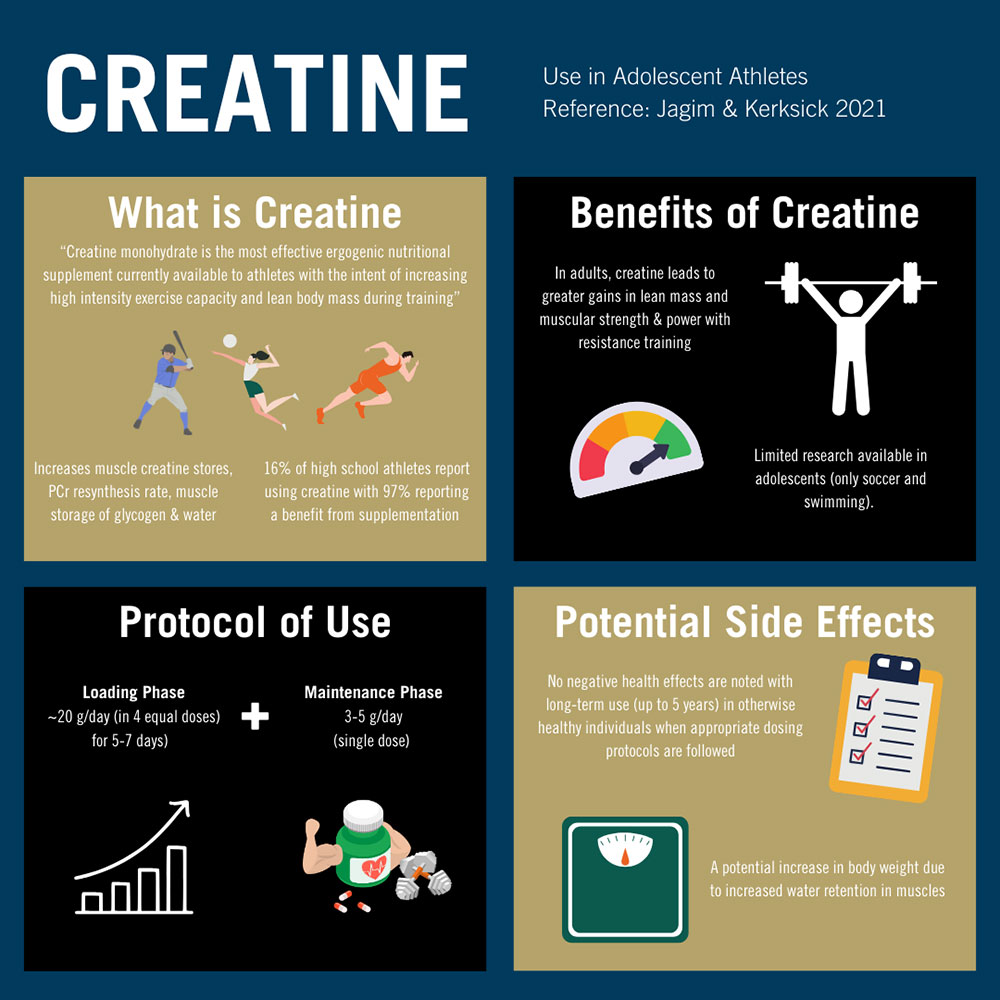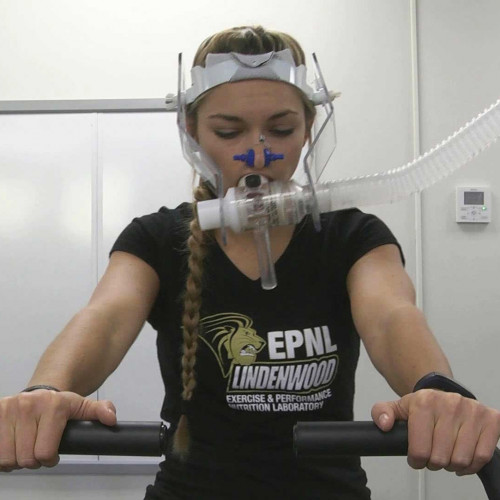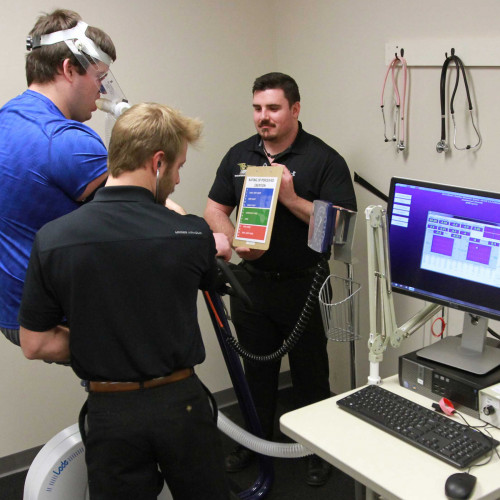Effects of Creatine Monohydrate Supplementation on Body Composition and Upper-Body and Lower-Body Performance
LU IRB#: IRB-24-81
PI: Chad Kerksick, PhD
Learn About Our Research Study:
Informational Sessions for Athletes and Parents
Join us for our regularly scheduled virtual informational sessions (20 minutes), designed specifically for athletes and their parents. These will occur during lunchtime and evenings on Wednesdays. During these sessions, we'll cover:
- What creatine is and its effects
- Current research and knowledge on creatine
- Study details and requirements
- Address any questions or concerns you may have
- View Available Dates and Register for Informational Session
No commitment expected! This session is purely informational, and you'll be under no obligation to participate in the study by attending. If you're interested in learning more or enrolling, we'll provide next steps and guidance during the session.
Description of Study
The purpose of this study is to evaluate the ability of creatine monohydrate supplementation to augment exercise training adaptations related to body composition and upper-body and lower-body performance in male and female adolescent athletes.
Location
Exercise and Performance Nutrition Laboratory (Fieldhouse 126)
209 S Kingshighway St
Saint Charles, MO 63301
Number of Visits
3
Time Commitment
Visits 1-3: 120 minutes each
Compensation
$25 gift card, an EPNL shaker cup, and an EPNL t-shirt
Points of Contact
Joesi Morey
epnl@lindenwood.edu
Research Sample Needed
- 100 high-school-aged male and female athletes.
Inclusion Criteria
- Each participant must be cleared medically by their school or a medical professional for sport participation.
- Approximately 100 male and female high school athletes of all racial backgrounds, between the ages of 15 – 17 years of age will be recruited for this study.
- Participants will be required to report their typical nutritional intake including any other dietary supplements as well as exercise training protocols throughout the study protocol.
- All participants will abstain from ingesting all foods, fluids, supplements (including caffeine), and medications for at least 8 hours prior to testing.
- All participants who are already taking creatine will be required to stop taking creatine for 30 days prior to enrolling in the study.
- All participants will be required to refrain from unaccustomed exercise for at least 24 hours prior to each testing session and have not completed any exercise in the previous 12 hours.
- Any combination of information determined as part of the review of information through completion of the proposed data safety monitoring plan (DSMP) that results in a recommendation for any participant to be excluded or removed from participation.
Exclusion Criteria
- Any individual who is not medically cleared by their school or medical professional to participate in this study will be excluded from this study.
- Athletes who are currently recovering or rehabilitating a musculoskeletal injury (e.g., bone fracture, muscle tear or rupture, tendon strain or rupture, ligament sprain or rupture). In these instances, the potential participant may begin the study protocol after being medically cleared to begin participating in sporting activities.
- Any participant currently taking thyroid, anti-hyperlipidemic, hypoglycemic, anti-hypertensive, anti-inflammatory, or androgenic medications. Other medications could be deemed exclusionary based upon clinical review by study physicians.
- Any participant who has taken any nutritional supplements or ergogenic aids (i.e. creatine, beta-alanine, HMB, DHEA, thermogenic, etc.) other than a daily multivitamin and protein powder within the previous 4 weeks.
- Any athlete who is younger than 15 years of age or older than 17 years of age will be excluded.
Are You Eligible?
Information provided here reflects current IRB approval for this research. However, this information may be subject to change and updated accordingly.
References
View References
- Kreider RB, Kalman DS, Antonio J, Ziegenfuss TN, Wildman R, Collins R, et al. International Society of Sports Nutrition position stand: safety and efficacy of creatine supplementation in exercise, sport, and medicine. J Int Soc Sports Nutr. 2017;14:18.
- Wax B, Kerksick CM, Jagim AR, Mayo JJ, Lyons BC, Kreider RB. Creatine for Exercise and Sports Performance, with Recovery Considerations for Healthy Populations. Nutrients. 2021;13(6).
- Kreider RB. Long-term creatine supplementation does not significantly affect clinical markers of health in athletes. Mol Cell Biochem. 2003;244.
- Greenwood M. Cramping and injury incidence in collegiate football players Are reduced by creatine supplementation. J Athl Train. 2003;38.
- Cooke MB, Rybalka E, Williams AD, Cribb PJ, Hayes A. Creatine supplementation enhances muscle force recovery after eccentrically-induced muscle damage in healthy individuals. J Int Soc Sports Nutr. 2009;6:13.
- Hespel P, Derave W. Ergogenic effects of creatine in sports and rehabilitation. Sub-cellular biochemistry. 2007;46.
- Jagim AR, Kerksick CM. Creatine Supplementation in Children and Adolescents. Nutrients. 2021;13(2).
- Jagim AR, Stecker RA, Harty PS, Erickson JL, Kerksick CM. Safety of Creatine Supplementation in Active Adolescents and Youth: A Brief Review. Front Nutr. 2018;5:115.
- Metzl JD, Small E, Levine SR, Gershel JC. Creatine Use Among Young Athletes. Pediatrics. 2001;108(2):421-5.
- Unnithan VB, Veehof SH, Vella CA, Kern M. Is there a physiologic basis for creatine use in children and adolescents? J Strength Cond Res. 2001;15(4):524-8.















